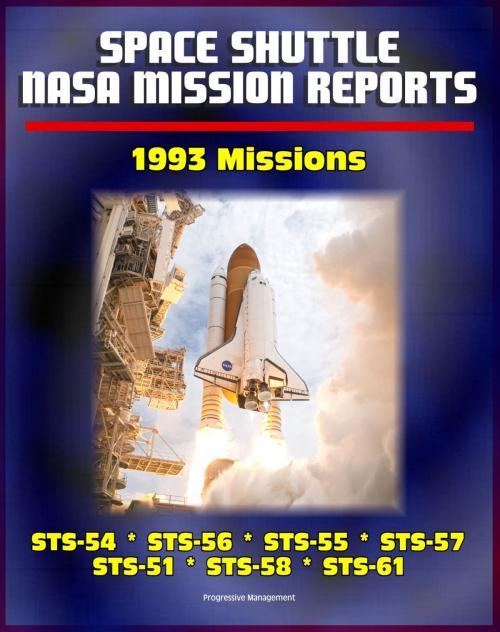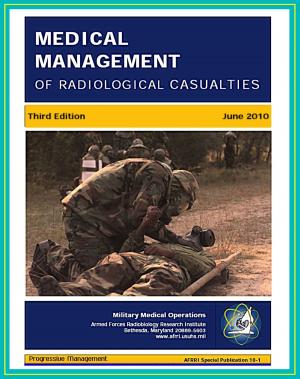Space Shuttle NASA Mission Reports: 1993 Missions, STS-54, STS-56, STS-55, STS-57, STS-51, STS-58, STS-61
Nonfiction, Science & Nature, Science, Physics, Astronomy, Other Sciences, History| Author: | Progressive Management | ISBN: | 9781466013407 |
| Publisher: | Progressive Management | Publication: | January 9, 2012 |
| Imprint: | Smashwords Edition | Language: | English |
| Author: | Progressive Management |
| ISBN: | 9781466013407 |
| Publisher: | Progressive Management |
| Publication: | January 9, 2012 |
| Imprint: | Smashwords Edition |
| Language: | English |
These official final program mission reports issued by the NASA Johnson Space Center cover missions in 1993: STS-54, STS-56, STS-55, STS-57, STS-51, STS-58, and STS-61. In these thorough reports, with information and specifics not available on NASA website mission descriptions, each orbiter system is reviewed in detail along with technical information on performance and anomalies.
STS-54: The primary objectives of this flight were to perform the operations to deploy the Tracking and Data Relay Satellite-F/Inertial Upper Stage payload and to fulfill the requirements of the Diffuse X-Ray Spectrometer (DXS) payload.
STS-56: The primary objective of this flight was to successfully perform the planned operations of the ATLAS-2 payload. The secondary objectives of this flight were to perform the operations of the Shuttle Solar Backscatter Ultraviolet (SSBUV)/A experiment; deploy and retrieve the Shuttle Pointed Autonomous Research Tool for Astronomy-201 (SPARTAN-201) payload.
STS-55: The primary objective of this flight was to successfully launch, operate, and return the German Spacelab D2 payload. The German D2 payload is composed of the Spacelab Module, the unique support structure (USS), and the reaction kinetic in glass melts (RKGM) get-away special (GAS). The secondary objective of this flight was to perform the operations of the Shuttle Amateur Radio Experiment (SAREX-II) payload.
STS-57: The primary objectives of this flight were to perform the operations necessary to fulfill the requirements of the NASA-leased Spacehab-1 payload and to retrieve the European Retrievable Carrier (EURECA) payload.
STS-51: The primary objectives of this flight were to successfully deploy the Advanced Communication Technology Satellite/Transfer Orbit Stage (ACTS/TOS) payload and to perform the operations required to support the Orbiting Retrievable Far and Extreme Ultraviolet Spectrometer - Shuttle Pallet Satellite (ORFEUS-SPAS) payload.
STS-58: The primary objective of this mission was the successful performance of the operations of the Spacelab Life Sciences (SLS) -2 payload. The secondary objective of this flight was to perform the operations of the Shuttle Amateur Radio Experiment-II (SAREX-II) payload.
STS-61: The primary objective of the STS-61 mission was to perform the first on-orbit servicing of the Hubble Space Telescope. The servicing tasks included the installation of new solar arrays, replacement of the Wide Field/Planetary Camera I (WF/PC I) with WF/PC II, replacement of the High Speed Photometer (HSP) with the Corrective Optics Space Telescope Axial Replacement (COSTAR), replacement of rate sensing units (RSUs) and electronic control units (ECUs), installation of new magnetic sensing systems and fuse plugs, and the repair of the Goddard High Resolution Spectrometer (GHRS). Secondary objectives were to perform the requirements of the IMAX Cargo Bay Camera (ICBC), the IMAX Camera, and the Air Force Maui Optical Site (AMOS) Calibration Test.
These official final program mission reports issued by the NASA Johnson Space Center cover missions in 1993: STS-54, STS-56, STS-55, STS-57, STS-51, STS-58, and STS-61. In these thorough reports, with information and specifics not available on NASA website mission descriptions, each orbiter system is reviewed in detail along with technical information on performance and anomalies.
STS-54: The primary objectives of this flight were to perform the operations to deploy the Tracking and Data Relay Satellite-F/Inertial Upper Stage payload and to fulfill the requirements of the Diffuse X-Ray Spectrometer (DXS) payload.
STS-56: The primary objective of this flight was to successfully perform the planned operations of the ATLAS-2 payload. The secondary objectives of this flight were to perform the operations of the Shuttle Solar Backscatter Ultraviolet (SSBUV)/A experiment; deploy and retrieve the Shuttle Pointed Autonomous Research Tool for Astronomy-201 (SPARTAN-201) payload.
STS-55: The primary objective of this flight was to successfully launch, operate, and return the German Spacelab D2 payload. The German D2 payload is composed of the Spacelab Module, the unique support structure (USS), and the reaction kinetic in glass melts (RKGM) get-away special (GAS). The secondary objective of this flight was to perform the operations of the Shuttle Amateur Radio Experiment (SAREX-II) payload.
STS-57: The primary objectives of this flight were to perform the operations necessary to fulfill the requirements of the NASA-leased Spacehab-1 payload and to retrieve the European Retrievable Carrier (EURECA) payload.
STS-51: The primary objectives of this flight were to successfully deploy the Advanced Communication Technology Satellite/Transfer Orbit Stage (ACTS/TOS) payload and to perform the operations required to support the Orbiting Retrievable Far and Extreme Ultraviolet Spectrometer - Shuttle Pallet Satellite (ORFEUS-SPAS) payload.
STS-58: The primary objective of this mission was the successful performance of the operations of the Spacelab Life Sciences (SLS) -2 payload. The secondary objective of this flight was to perform the operations of the Shuttle Amateur Radio Experiment-II (SAREX-II) payload.
STS-61: The primary objective of the STS-61 mission was to perform the first on-orbit servicing of the Hubble Space Telescope. The servicing tasks included the installation of new solar arrays, replacement of the Wide Field/Planetary Camera I (WF/PC I) with WF/PC II, replacement of the High Speed Photometer (HSP) with the Corrective Optics Space Telescope Axial Replacement (COSTAR), replacement of rate sensing units (RSUs) and electronic control units (ECUs), installation of new magnetic sensing systems and fuse plugs, and the repair of the Goddard High Resolution Spectrometer (GHRS). Secondary objectives were to perform the requirements of the IMAX Cargo Bay Camera (ICBC), the IMAX Camera, and the Air Force Maui Optical Site (AMOS) Calibration Test.















